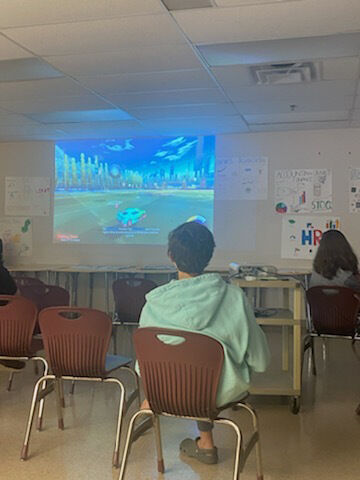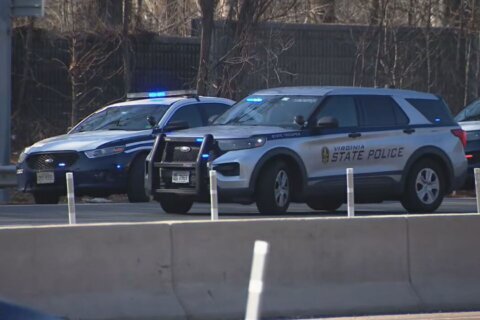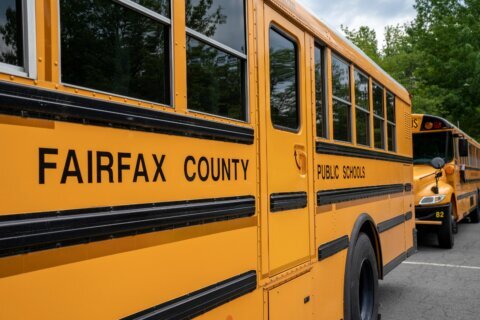During the school day, room 462 at South Lakes High School in Fairfax County, Virginia, is used for business, economics and personal finance classes. It features a traditional setup with computers laid out across the room.
But as soon as the school day concludes several times a week, anywhere from 15 to 20 high school students join Kevin Okeefe, who teaches history. The students are part of the school’s esports team, a program recently established at schools across Virginia’s largest school system.
At South Lakes, Okeefe sent out information about an interest meeting, unsure about the number of students who would consider joining. Last fall, the club had six students, and as of this fall has more than doubled in size. For many students, participation in esports started as a hobby and has evolved into a competition that has the potential to earn them college scholarships.
“My favorite part is just being able to compete, and really take what I love doing, what used to just be a hobby, and be able to take it forward for my school and compete against other schools,” said student Devin Burnell. “It’s such an amazing thing.”
Before the pandemic, esports became what the Virginia High School League categorized as an “emerging activity,” according to Fernando Belli, after school administrator for high school in the school system. The state’s governing body gives emerging activities three years before they can become a fully-sanctioned activity, he said.

Fairfax County schools started an esports pilot program before the pandemic, Belli said, but virtual learning and school closures “put that to bed for a little bit.”
But things resumed last fall, with the county launching a scrimmage league for the game Rocket League, he said.
“Esports is an academic activity that involves game titles that are played among schools with competitions, and ultimately has a culminating Virginia High School League state tournament at the end of the year,” Belli said.
Currently in the first full non-pilot year, the county’s esports program has six schools competing this fall. Belli said the county anticipates many more will be involved in the spring season.
At South Lakes, students participate in a seven-game season, and at the end of the season, the top 32 teams participate in the playoffs, Okeefe said. The group practices on Tuesdays and Wednesdays and participates in matches on Thursdays.
Rocket League, Okeefe said, is similar to soccer but features cars instead of people.
“When you make one move, and it’s blocked, you’ve got to go back and defend that said move,” Okeefe said. “Your teammates have to come back and protect the nets.”
During practices, the group hosts competitions, because each team features three students. But not all of the students in the group are participating in the contest.
Nicole Luna, for one, joined the group and is in charge of logistics, working to organize things like the group’s participation in the recent homecoming parade.
Nathan Bahrami serves as one of the commentators.
“The commentator can embrace what the spectators are feeling, and just put that into words,” Bahrami said.
The group has chairs placed for anyone interested in watching each competition, and Okeefe said he hopes to eventually have access to an auditorium where anyone can watch the after-school matches.
“This brand new thing that’s out called esports is really coming alive,” Okeefe said. “And what better way to do it than to have some 500 screaming kids that are cheering these guys on that usually play at home in their basements?”
Because it’s a sanctioned sport, Okeefe said, each participant will earn a varsity letter. And at the end of the season, there’s a competition that awards winners with scholarships.
Several colleges across the country have similar programs, Belli said.
But for Okeefe and his students, the weekly meetings in Room 462 are about bonding over competition and similar interests.
“You get to make more friends, new friends that share the same interest in games as you all,” Jeremy Garcia said. “And then growing that friendship, getting more friends to play the video game with.”








